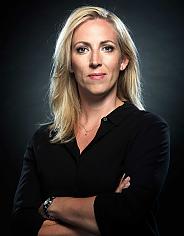Who runs our country?
Who runs our country?
After a year of debate and resistance from across society, the decision has finally been taken: there will be no abolition of the tax on dividends. The billions which this abolition would have cost the state, however, have now been been repackaged in festive paper and given, for the most part, to the multinationals. SP leader Lilian Marijnissen, responding to this news, said: “This was a chance for the Prime Minister to restore his credibility by making it clear that he understands that this money must not go to provide another gift to big capital, but should instead be invested in our society. Unfortunately, however, he has not chosen to take this course. This gift token worth billions of euros must and shall be handed to big business. Doesn't he understand that all those Dutch citizens who were simply happy that the abolition of the tax on dividends had finally been abandoned now feel that they've been taken for a ride?”
 After the debate, which lasted a whole year, a single text message from Unilever was enough to have the abolition of the tax on dividends scrapped. “Who runs this country now?” asks Marijnissen. “After the last week we know well enough. This time it was Unilever, tomorrow it could be Shell or Philips. In any case it isn't Prime Minister Mark Rutte. It's big money that pulls the strings and Rutte leaves the important decisions to the top people in the multinationals.”
After the debate, which lasted a whole year, a single text message from Unilever was enough to have the abolition of the tax on dividends scrapped. “Who runs this country now?” asks Marijnissen. “After the last week we know well enough. This time it was Unilever, tomorrow it could be Shell or Philips. In any case it isn't Prime Minister Mark Rutte. It's big money that pulls the strings and Rutte leaves the important decisions to the top people in the multinationals.”
In Marijnissen's view it's time to change course. Explaining why the SP supported the motion of no confidence in premier Rutte, she said, “We need a Prime Minister who isn't an errand boy for the powerful, and one whose offices in the Torrentje are more than a conference centre for cooperating multinationals.” The Torrentje – its name means 'Little Tower' – dates back to the 14th Century, so that it has stood throughout the gradual democratisation of the Netherlands, and Marijnissen wants it “once again to stand as a symbol for a politics which fights for the interests of the entire society.”
